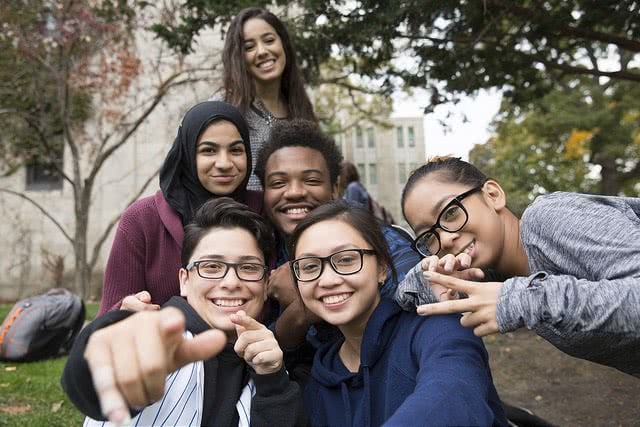
Flickr user Dominican University
First generation college students often face a more difficult transition when starting school than students whose parents, grandparents, and beyond have attended college. First-generation college students tend to deal with a unique set of barriers in addition to the common problems that many incoming freshmen face.
It’s important that these difficulties don’t prevent first generation students from pursuing their collegiate dreams. The key to overcoming these barriers? Preparing for them. Here are a few tips for first generation college students to transition successfully to university life:
Tips for first generation students: Choosing a Major
One of the most panic-inducing decisions that any student has to make is picking their college major. And if no one in their immediate family can speak from experience when choosing a major, first generation students may have an even more difficult time with this. While some schools may offer everything from accounting to public administration to zoology, others will have a smaller selection. Having too many options can be overwhelming, but not having enough to choose from can be limiting.
Even after choosing their major, students may change their minds about their course of study. Switching majors is perfectly fine—the first one a student picks might not be the one that’s best for them. This will have a huge bearing on students’ future careers and academic performance, making the right major vital to student success. Reaching out to an academic advisor or professor can help first generation students navigate which classes to take, as well as offer support for any questions or concerns.
Find Resources
About one-third of all undergraduates are first generation college students. Many universities provide resources and programs specifically to help first-generation students. If not, there is a wealth of other resources that most campuses offer, including career centers, academic counseling, or even living learning communities (LLCs).
In addition, many colleges offer services to support minority students, including LGBTQ+ organizations and multicultural groups. First generation students should seek out as much support as they need or want to; whether to address social or academic needs. Looking beyond financial and academic support is fundamental to the success of first generation students as they transition to college.
Moving Away From Home
Without some preparation, move-in day can be stressful and chaotic instead of exciting. First generation students should get ready for the adjustment as much as possible; moving in and of itself is demanding, and moving into a completely new environment can be overwhelming. Students should reach out to their new roommates, use a moving checklist, and begin packing far ahead of their move-in date. As the time draws nearer, students can then focus on spending time with their friends and family, gathering supplies for their classes, and obtaining any last-minute or forgotten items. The days leading up to it—as well as move-in day itself—will be full of chaos, emotion, and excitement.
First generation students should do their best to concentrate on the excitement instead of the nitty-gritty details as they embark on their experience in higher education. Oftentimes, they have to navigate college on their own. By preparing as much as they can beforehand, first generation college students will be able to overcome any obstacles in their way.
Use College Raptor to discover personalized college matches, cost estimates, acceptance odds, and potential financial aid for schools around the US—for FREE!





